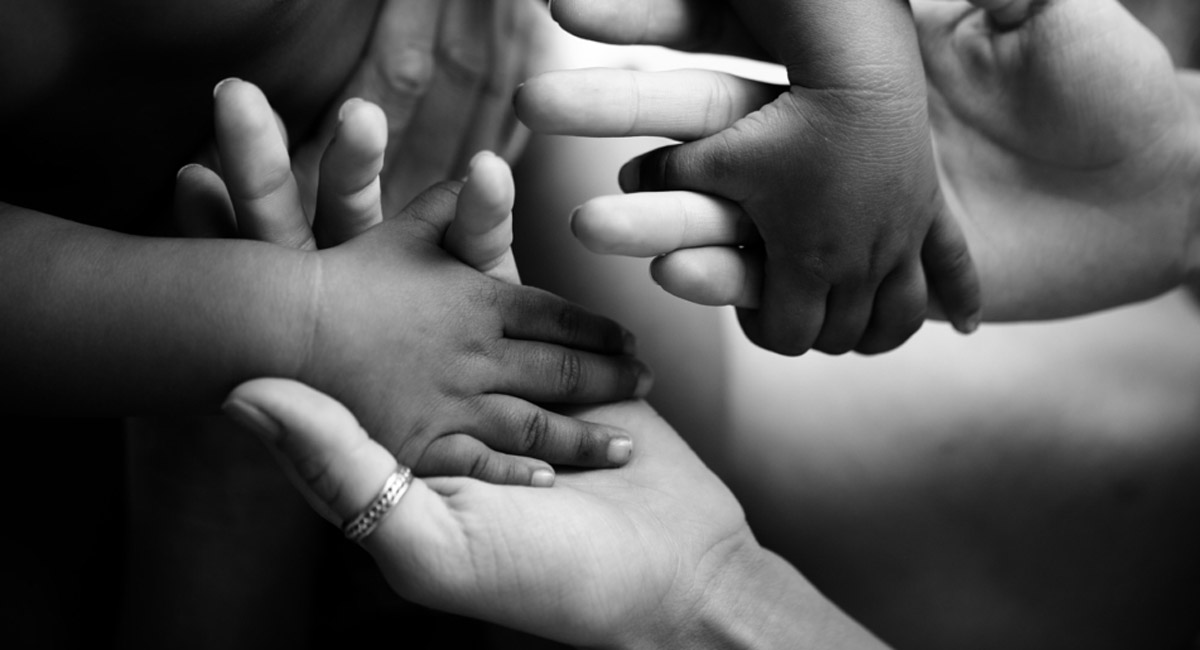Adoption. It’s a word heard often in the pro-life movement, but also a word that holds many emotions and antiquated stigmas.
Adoption has evolved over time. From secrecy and shame, to openness and embracing one another. The narrative has shifted in the last few years in the adoption community and there has been an explosion of education that has caused many of the old, unethical practices, language, and thought processes to be challenged. Members of the adoption triad (adoptee, adoptive parents, and birth parents) are speaking out by sharing their stories, both good and bad.
But it’s not just those members who can speak out. You have influence. Just like you talk to your family, friends, and people at school about pro-life topics to change their perspective, there is also the same need for you to talk about adoption. It is such a misunderstood issue, and the narrative in the pro-life movement — and society in general — is what we call “adoptive parent privileged.”
When you hear people talk about adoption, who do you hear it from the most?
Many would say adoptive parents. When one voice of a complex issue has an elevated advantage there is a gap. We know this because adoption is personal to us at Woven Together. I, Mallory, am a partial adoptee and the other person on our team, Leah, is a birth mom.
When this gap in society became glaringly obvious to us and others we were serving (which happened to be hopeful adoptive parents), we wondered how we could make a change in our work circle, and beyond our personal influence. We saw a gap often filled with fear, antiquated views, people craving answers to hard questions from the other sides of the triad– or some even resistant to hearing them.
We saw a need within the faith community as a whole to tackle the heart issues surrounding adoption within our culture. So, we created two courses under the name Woven Together.
One helps hopeful adoptive parents in learning about the pre- and post-placement process and really digs into the heart prep because the process is LIFELONG, not just a moment in time leading up to adopting.
Our second course is for the pro-life and church community. We knew that these organizations are on the frontlines of serving women experiencing unplanned pregnancies and are talking about adoption. We knew they are getting minimal education and needed tools and resources to better understand this life-giving option of adoption and to know how to present it to a woman considering her options. We want to see the pro-life community become equipped in modern adoption practices and presenting it in a way that empowers a woman to choose the best option for her, whatever that may be.
READ: These three senators want to make adoption more affordable for families
Ask yourself these questions:
- Do you think adoption is an easy choice?
- How do you view women and men who choose to place their children?
- Have you listened to voices, both positive and hard to hear, from all sides of the triad?
- How do you talk about it? Are you aware of the current adoption language (such as instead of saying “gave up” using “placed”)?
- Are you comfortable talking about adoption with friends or family, around the dinner table, at work or school?
- What role can you play in sharing with others what modern adoption is?
I believe we can empower ourselves with knowledge similar to other topics we as people are passionate about, such as racial issues, pro-life issues, immigration, homelessness, etc. I truly believe we can’t evoke change unless we open our minds before we open our mouths to offer solutions.
Change the culture. Change the hearts. Change the conversations.
Adoption is an issue of understanding. That is why it is vital to the integrity of the pro-life movement to have current, ethical and modern adoption education circulating within schools, workplaces, and around the dinner table. That is why it’s vital to have more than an agency come into a pro-life organization once a year to train for two hours (or less!) to meet their education requirements set by the state.
This change starts with us as individuals with our own perceptions and understanding of adoption. Our perceptions of the women who sit across from us who may become a birth mom if she ultimately places her baby. Does her life have value or are we trying to just save her baby? We have to be for her life too, and that means empowering her with the best tools we have so she can make the best choice for herself and her baby, and then supporting her after birth as well.
It also starts with our heart and our willingness to support those who have already chosen adoption. It starts by listening to those who have walked through an adoption journey, with various experiences and perspectives to learn from them.
Now I challenge you with this: How will the culture of adoption change in your own life?
My bio: Mallory Fogas is the owner of Arrow + Root. Find out more here.
“Like” Live Action News on Facebook for more pro-life news and commentary!







